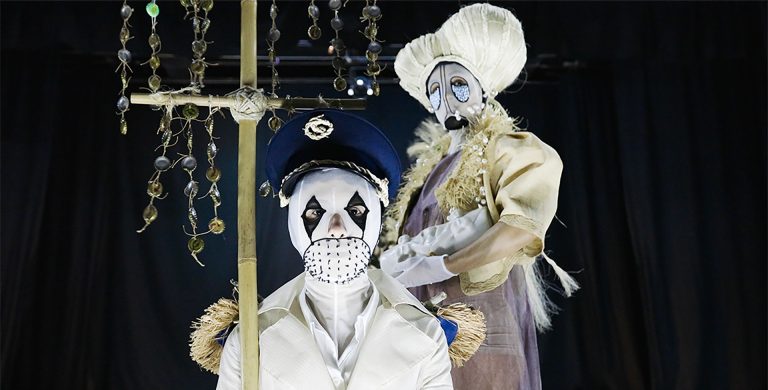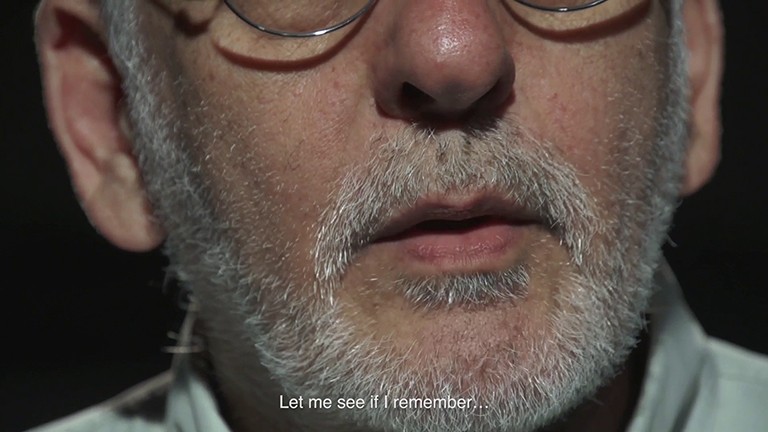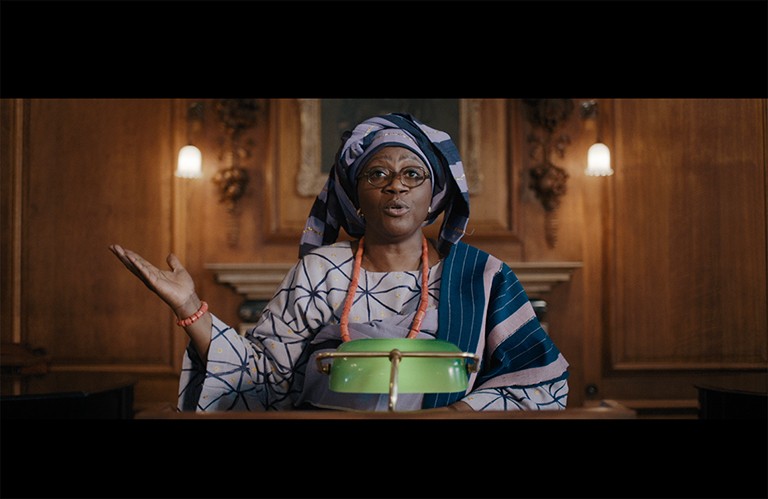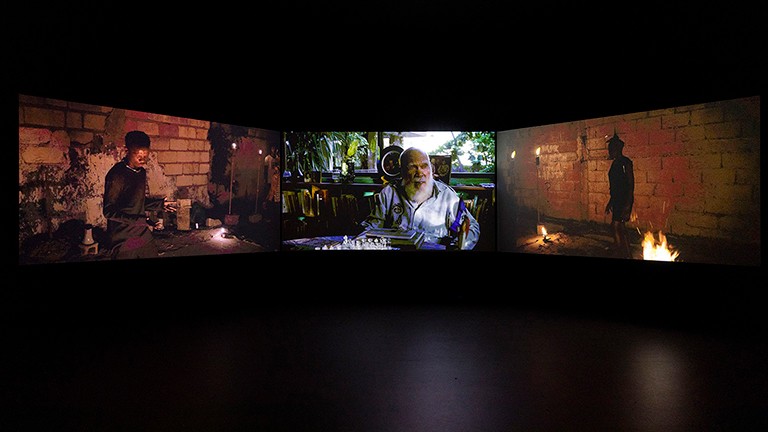Concordia’s Ellen Art Gallery exhibition explores aspects of the long tradition of protest theatre

Concordia’s Leonard and Bina Ellen Art Gallery is putting the spotlight on radical theatre with a new exhibition featuring the works of contemporary artists.
A Stage for Rebellion is curated by the gallery’s Max Stern Curator of Research, Julia Eilers Smith. Running from November 18 through January 27, the show revisits grassroots plays that have faded from memory and examines them in the face of contemporary struggles for justice.
The exhibition showcases the works of seven artists and one artists’ collective:
- Wingston González
- Clara Ianni
- Onyeka Igwe
- Amol K Patil
- Bouchra Khalili
- Naufus Ramírez-Figueroa
- The Living and the Dead Ensemble
- Ashes Withyman
The artists examine theatre practices that emerged in contexts of repression and political strife — many of which are related to anticolonial resistance in the mid-20th century.
“Revisiting works from the militant performances of São Paulo’s Teatro Arena to travelling medieval and contemporary troupes, the exhibition is a reminder that theatre is always political,” Smith explains.
The exhibition’s artworks also highlight the Arab Workers Movement’s agitprop theatre in France and a university theatre group active during Guatemala’s civil war.
Theatre serving anticolonial movements in the United Kingdom and working-class resistance in India and a revolutionary artists’ collective in Port-au-Prince, Haiti, are also featured.
Some of the artists also explore the theme of the body as a repository of memory. They show that the body has knowledge that transcends historical narratives.
 Repetitions, 2017-2018, by Clara Ianni. | Image courtesy of the artist
Repetitions, 2017-2018, by Clara Ianni. | Image courtesy of the artist
In Repetitions (2017–2018), Clara Ianni explores the first play staged in São Paulo against the 1964 military coup, “Arena Conta Zumbi.” Ianni looks at the piece through the recollections of former actor Izaias Almada.
Ianni films Almada performing physical exercises to try to remember his lines. Through revisiting the production, Ianni draws parallels to modern-day Brazil and reflects on what has changed since the play’s debut.
Other artists exhume, edit and reconstruct archives, rewriting past narratives and creating new perspectives on historical events.
 History is an Endless Play, 2023, by Onyeka Igwe. | Image courtesy of the artist
History is an Endless Play, 2023, by Onyeka Igwe. | Image courtesy of the artist
History is an Endless Play (2023) is a short two-channel film by Onyeka Igwe. The film engages with archival material and creates a new speculative narrative. It imagines two women of different generations, both part of the post-war independence movements, coming together in London to put their fervour and imagination into writing a revolutionary play.
Meanwhile, other works use past theatre practices as inspiration to address contemporary struggles and concerns by integrating these historical methods into present-day performances.
 The Wake, 2019–present, by The Living and the Dead Ensemble. | Image courtesy of the artist
The Wake, 2019–present, by The Living and the Dead Ensemble. | Image courtesy of the artist
The Living and the Dead Ensemble is a group of artists, performers and poets from Haiti, France and the U.K. The ensemble explores different methods of telling history and reflecting the present from a Haitian perspective.
In its project The Wake (2019–present), the ensemble participates in poetic interventions, storytelling evenings, theatrical performances and a new film. The group often recites the works of Caribbean playwrights and writers from the 1960s and ’70s.
“I’ve always been interested in performance and art practices that unfold in the streets, that don’t necessarily fit into one object in an institutional space,” Smith shares.
“All the artworks emphasize the enduring political and disruptive potential of theatre.”
A Stage for Rebellion is presented at the Leonard and Bina Ellen Art Gallery, 1400 De Maisonneuve Blvd. W., from November 18 to January 27.
Attend the exhibition’s opening on November 18 from 3 to 5 p.m.


